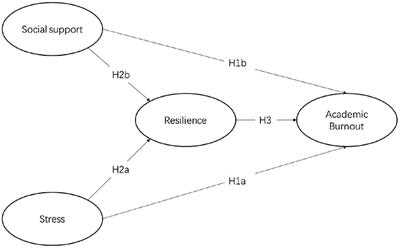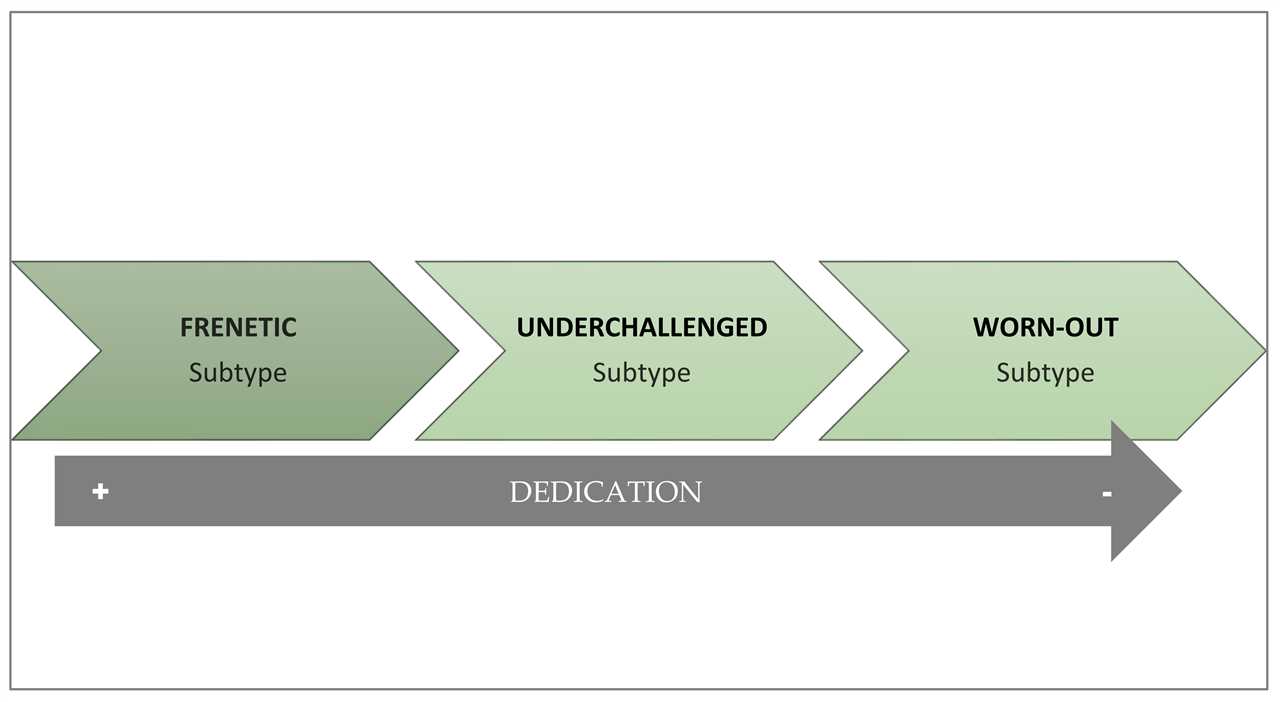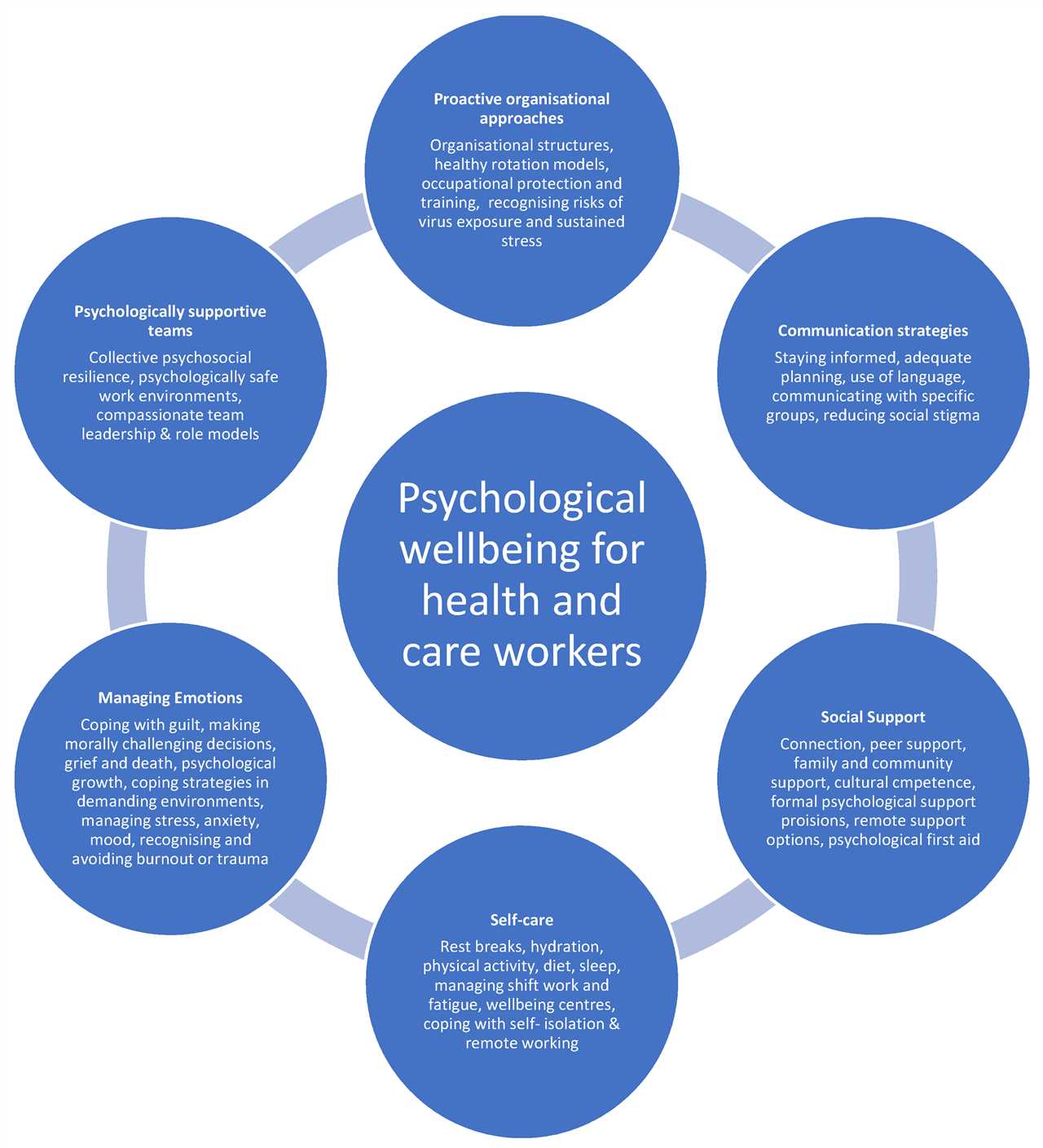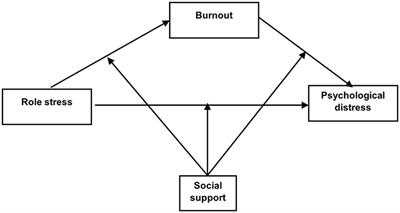
Stress has become an inevitable part of our lives in today’s fast-paced world. Whether it’s the demands of work, personal relationships, or the constant pressure to perform, stress can take a toll on our mental and physical well-being. It’s no wonder that stress-related burnout has become a major concern in many professions.
But what exactly is burnout? Burnout is a state of chronic physical and emotional exhaustion, often accompanied by feelings of cynicism and detachment from work. It affects not only our performance but also our overall quality of life. And this is where the Healthcare Assistant (HCA) plays a crucial role.
Resilience, the ability to bounce back from stress and adversity, is an essential trait for HCAs. They are on the front lines of patient care, often dealing with challenging situations and high levels of stress. Their ability to maintain their own well-being while providing compassionate care is vital for both themselves and their patients.
What is Stress Burnout?
Stress burnout is a state of physical, mental, and emotional exhaustion caused by prolonged exposure to high levels of stress. It is a condition that affects many individuals, including healthcare assistants (HCAs), who often work in demanding and stressful environments.
HCAs are responsible for providing direct care to patients, assisting with daily activities, and supporting healthcare professionals in various tasks. This can involve long hours, heavy workloads, and dealing with challenging situations, which can contribute to the development of stress and burnout.
Stress burnout is characterized by a range of symptoms, including fatigue, sleep disturbances, irritability, decreased productivity, and a sense of detachment from work and personal life. It can have a significant impact on an HCA’s physical and mental well-being, as well as their ability to provide quality care to patients.
It is important for HCAs to recognize the signs of stress burnout and take steps to prevent and manage it. This can include practicing self-care, seeking support from colleagues and supervisors, and implementing stress management techniques such as exercise, relaxation techniques, and time management strategies.
By understanding stress burnout and taking proactive measures to prevent and manage it, HCAs can maintain their well-being and continue to provide high-quality care to patients.
What is Resilience?

Resilience is the ability to bounce back from difficult situations and adapt to change. It is the capacity to withstand and recover from stress, adversity, and burnout. Resilience is not about avoiding stress or eliminating it completely, but rather about developing the skills and mindset to navigate through challenging circumstances.
Resilient individuals have a positive outlook and are able to maintain a sense of hope and optimism, even in the face of adversity. They have strong problem-solving skills and are able to find creative solutions to difficult problems. Resilience is also closely linked to emotional intelligence, as it involves being aware of and managing one’s emotions effectively.
Resilience is not something that people are born with, but rather it is a skill that can be developed and strengthened over time. It requires practice and intentional effort to build resilience, just like any other skill. Building resilience involves developing healthy coping mechanisms, such as seeking support from others, practicing self-care, and engaging in activities that promote well-being.
Resilience is particularly important for healthcare assistants (HCAs) who work in high-stress environments. HCAs often face challenging situations, such as caring for patients who are in pain or distress, dealing with difficult colleagues or supervisors, and managing heavy workloads. Building resilience can help HCAs to cope with these stressors and prevent burnout, allowing them to continue providing high-quality care to their patients.
In conclusion, resilience is the ability to bounce back from stress, adversity, and burnout. It is a skill that can be developed and strengthened over time, and it is particularly important for HCAs who work in high-stress environments. By building resilience, HCAs can better cope with the challenges of their profession and continue to provide excellent care to their patients.
The Importance of Managing Stress and Building Resilience
Stress and burnout are common experiences for healthcare assistants (HCAs) due to the demanding nature of their work. It is crucial for HCAs to understand the importance of managing stress and building resilience to prevent burnout and maintain their well-being.
Burnout, which is a state of chronic physical and emotional exhaustion, can have serious consequences for HCAs and their ability to provide quality care. High levels of stress and burnout can lead to decreased job satisfaction, increased absenteeism, and even compromised patient safety. Therefore, it is essential for HCAs to take proactive steps to manage their stress levels and build resilience.
One way HCAs can manage stress is by adopting healthy coping mechanisms. This can include engaging in regular physical exercise, practicing relaxation techniques such as deep breathing or meditation, and seeking support from friends, family, or professional counselors. By incorporating these strategies into their daily routine, HCAs can better manage stress and prevent burnout.
Building resilience is another crucial aspect of managing stress. Resilience refers to one’s ability to adapt and bounce back from stressful situations. HCAs can develop resilience by cultivating positive thinking, maintaining a healthy work-life balance, and seeking opportunities for personal growth and development.
Additionally, HCAs can benefit from establishing a support network within their workplace. This can involve connecting with colleagues, participating in team-building activities, and seeking mentorship from more experienced healthcare professionals. By fostering a supportive work environment, HCAs can enhance their resilience and better cope with stress.
Furthermore, organizations can play a significant role in supporting HCAs in managing stress and building resilience. They can provide training and education on stress management techniques, promote work-life balance initiatives, and offer resources for mental health support. By prioritizing the well-being of HCAs, organizations can create a healthier work environment and reduce the risk of burnout.
| Benefits of Managing Stress and Building Resilience for HCAs |
|---|
| 1. Increased job satisfaction |
| 2. Improved physical and mental well-being |
| 3. Enhanced ability to provide quality care |
| 4. Reduced risk of burnout and absenteeism |
| 5. Better patient safety and outcomes |
In conclusion, managing stress and building resilience are crucial for HCAs to prevent burnout and maintain their well-being. By adopting healthy coping mechanisms, cultivating resilience, establishing support networks, and receiving organizational support, HCAs can better manage stress and provide quality care to their patients.
The Role of the HCA
The role of the Health Care Assistant (HCA) is crucial in understanding and addressing stress and burnout in the healthcare industry. HCAs play a vital role in supporting healthcare professionals and patients, and their well-being is essential for maintaining a healthy work environment.
HCAs are often on the front lines of patient care, providing direct support and assistance to healthcare professionals. They assist with tasks such as taking vital signs, administering medication, and helping patients with daily activities. This level of responsibility can be physically and emotionally demanding, making HCAs susceptible to stress and burnout.
Stress is a natural response to demanding situations, but prolonged exposure to stress can lead to burnout. Burnout is a state of physical, emotional, and mental exhaustion caused by chronic workplace stress. It can result in decreased job satisfaction, reduced productivity, and even physical and mental health issues.
HCAs are at a higher risk of burnout due to the nature of their work. They often work long hours, deal with challenging patient situations, and may face limited resources and support. However, HCAs also have a unique opportunity to make a difference in the lives of patients and contribute to the overall well-being of the healthcare team.
To address stress and burnout among HCAs, it is essential to provide them with the necessary support and resources. This includes regular training and education on stress management techniques, self-care practices, and effective communication strategies.
Additionally, healthcare organizations should prioritize the creation of a positive work environment that promotes teamwork, collaboration, and open communication. This can be achieved through regular team meetings, feedback sessions, and recognition programs that acknowledge the hard work and dedication of HCAs.
By recognizing the role of HCAs in understanding and addressing stress and burnout, healthcare organizations can create a culture of resilience and well-being. This not only benefits the HCAs themselves but also improves patient care outcomes and enhances the overall functioning of the healthcare system.
What is the HCA?
The HCA, or Health Care Assistant, plays a crucial role in understanding and addressing burnout and resilience in the healthcare setting. HCA’s are frontline workers who provide direct care and support to patients, assisting them with their daily activities and ensuring their well-being. They work closely with nurses and other healthcare professionals to deliver high-quality care.
As the demands of the healthcare industry continue to increase, HCAs often face high levels of stress and burnout. They may be exposed to emotionally challenging situations, long working hours, and heavy workloads. This can impact their mental and physical well-being, leading to burnout.
However, HCAs also possess unique qualities that contribute to their resilience. They are compassionate, empathetic, and dedicated individuals who genuinely care about the well-being of their patients. Their ability to form strong relationships with patients and provide emotional support is crucial in promoting resilience and recovery.
The HCA’s role in understanding and addressing burnout and resilience is multidimensional. They not only provide direct care but also act as advocates for patients, ensuring their needs are met and their voices are heard. They play a critical role in identifying signs of burnout in themselves and their colleagues, and in implementing strategies to mitigate and prevent burnout.
By promoting self-care, fostering a positive work environment, and providing support, the HCA can contribute to the overall well-being and resilience of the healthcare team. Their role is vital in maintaining a sustainable healthcare system that can effectively address the needs of patients and healthcare professionals alike.
How Does the HCA Impact Stress Burnout?
Stress and burnout are common challenges that healthcare professionals face, and the role of the healthcare assistant (HCA) in managing and mitigating these issues is crucial. The HCA plays a significant role in supporting patients and healthcare teams, which can often lead to high levels of stress.
One way the HCA impacts stress and burnout is through their ability to provide emotional support to patients. The HCA is often the first point of contact for patients, and their empathetic and compassionate approach can help alleviate stress and anxiety. By offering a listening ear and a caring presence, the HCA can create a supportive environment that promotes healing and reduces stress levels.
Additionally, the HCA’s role in assisting with daily tasks and activities can also contribute to stress reduction. By taking care of routine tasks such as bathing, dressing, and feeding patients, the HCA helps alleviate the workload of other healthcare professionals. This allows nurses and doctors to focus on more complex medical tasks, reducing their stress levels and preventing burnout.
Furthermore, the HCA’s ability to observe and report changes in patients’ conditions is crucial in preventing stress and burnout. By closely monitoring patients, the HCA can identify early signs of deterioration or complications, allowing for prompt intervention. This proactive approach not only improves patient outcomes but also reduces the stress and anxiety experienced by healthcare professionals.
In conclusion, the HCA plays a vital role in managing and mitigating stress and burnout in healthcare settings. Their ability to provide emotional support, assist with daily tasks, and monitor patients contributes to a supportive and efficient environment that reduces stress levels for both patients and healthcare professionals.
How Does the HCA Contribute to Resilience?

The role of the Healthcare Assistant (HCA) in contributing to resilience is crucial in preventing burnout and managing stress. HCAs play a vital role in providing support to patients, their families, and the healthcare team. Their contributions can significantly impact the overall well-being of individuals within a healthcare setting.
One way in which HCAs contribute to resilience is by providing emotional support to patients. They are often the first point of contact for patients and their families, offering a listening ear and a comforting presence. This emotional support helps patients cope with the stress and anxiety that can arise from their medical conditions, improving their resilience in the face of adversity.
HCAs also contribute to resilience by advocating for patients’ needs and rights. They are trained to recognize and address any barriers to care, ensuring that patients receive the necessary support and resources. By advocating for patients, HCAs empower them to actively participate in their own healthcare, enhancing their resilience and ability to navigate the healthcare system.
Furthermore, HCAs play a critical role in fostering a positive and supportive work environment for the healthcare team. They collaborate with other healthcare professionals, such as nurses and doctors, to ensure seamless care delivery. Their teamwork and communication skills help reduce stress and burnout among the healthcare team, promoting resilience and enhancing the overall quality of patient care.
In summary, the HCA contributes to resilience by providing emotional support to patients, advocating for their needs, and fostering a positive work environment. Their role is essential in preventing burnout and managing stress, both for patients and the healthcare team. By recognizing and valuing the contributions of HCAs, healthcare organizations can promote resilience and improve the well-being of all individuals involved.
Strategies for Managing Stress and Building Resilience

Stress and burnout can have a significant impact on the well-being and performance of healthcare assistants (HCAs). It is crucial for HCAs to develop strategies to manage stress and build resilience in order to maintain their physical and mental health.
One effective strategy for managing stress is to prioritize self-care. HCAs should make time for activities that promote relaxation and rejuvenation, such as exercise, meditation, or spending time in nature. Taking breaks throughout the day and ensuring sufficient restful sleep can also help manage stress levels.
Another important aspect of stress management is setting boundaries. HCAs should establish clear boundaries between work and personal life to prevent burnout. This may involve saying no to additional tasks or responsibilities when feeling overwhelmed, and learning to delegate when possible. Creating a support network, both within and outside of work, can also provide emotional support and help manage stress.
Building resilience is another crucial strategy for HCAs. Resilience refers to the ability to bounce back from adversity and maintain a positive outlook. HCAs can build resilience by cultivating a growth mindset, focusing on strengths and learning from challenges. Engaging in regular self-reflection and practicing gratitude can also help build resilience.
Additionally, HCAs should seek opportunities for professional development and continuing education. By expanding their knowledge and skills, HCAs can feel more confident and capable in their roles, which can help reduce stress and burnout.
In summary, managing stress and building resilience are essential for HCAs to maintain their well-being and effectively perform their roles. Prioritizing self-care, setting boundaries, building a support network, and seeking professional development are all strategies that can help HCAs navigate the challenges of their profession and promote resilience.

I am Patrina de Silva, a psychologist and mental health blogger in Sri Lanka. After obtaining psychology degrees from the University of Colombo and Monash University, I returned home to work as a counselor while also starting the popular blog “Pressy but Happy” to provide advice on psychological issues. Over the past decade, my empathetic articles have made my blog a leading mental health resource in the country. In addition to writing, I maintain a private therapy practice, frequently volunteer counseling time, and conduct seminars, driven by my passion for destigmatizing mental illness and educating the public on the mind-body connection. I strive to be an influential voice in my field through my compassionate approach.
